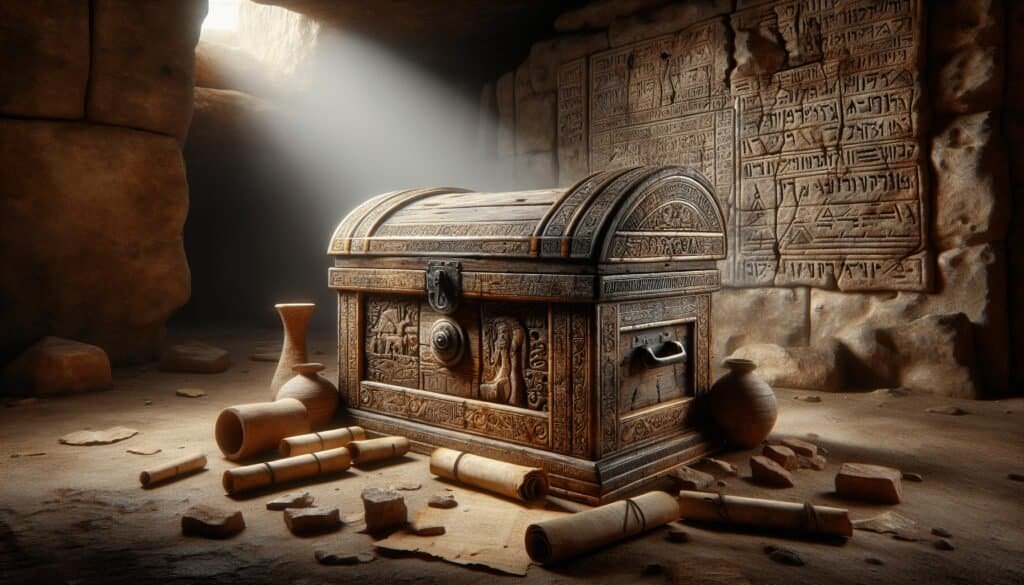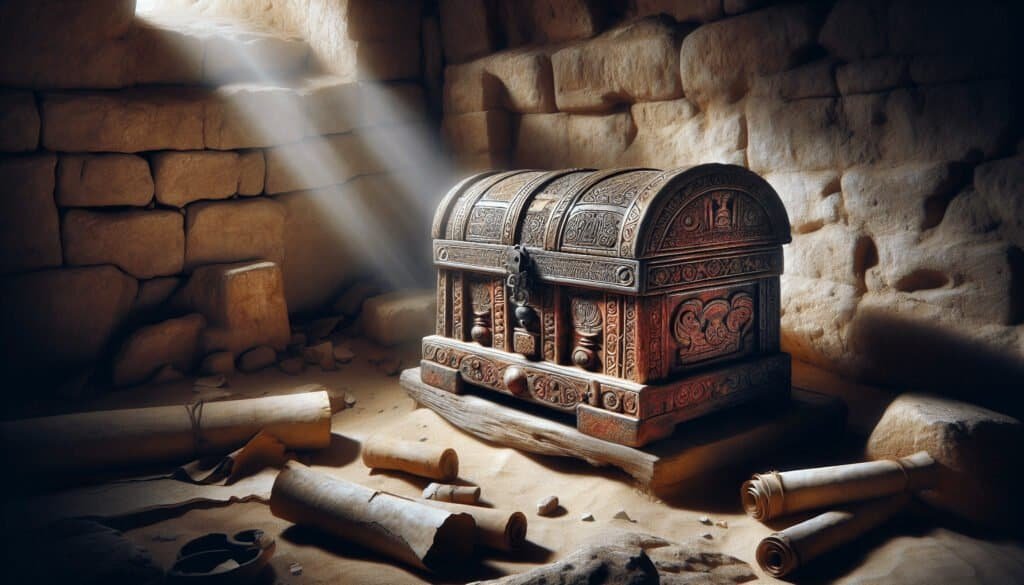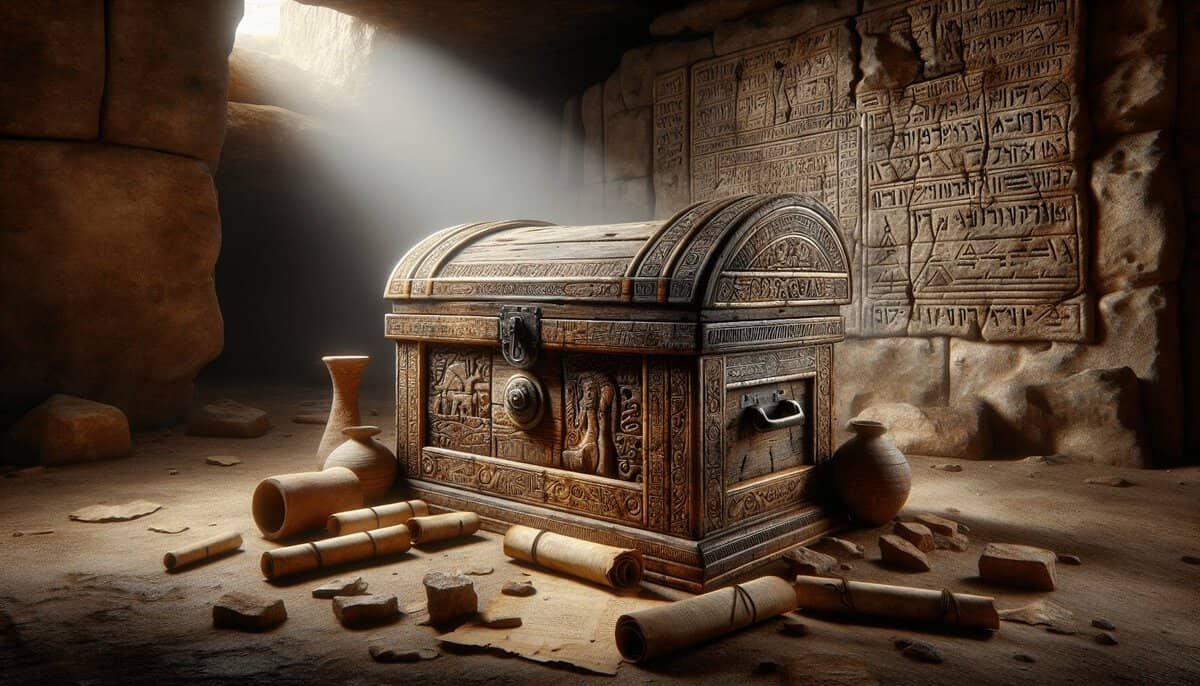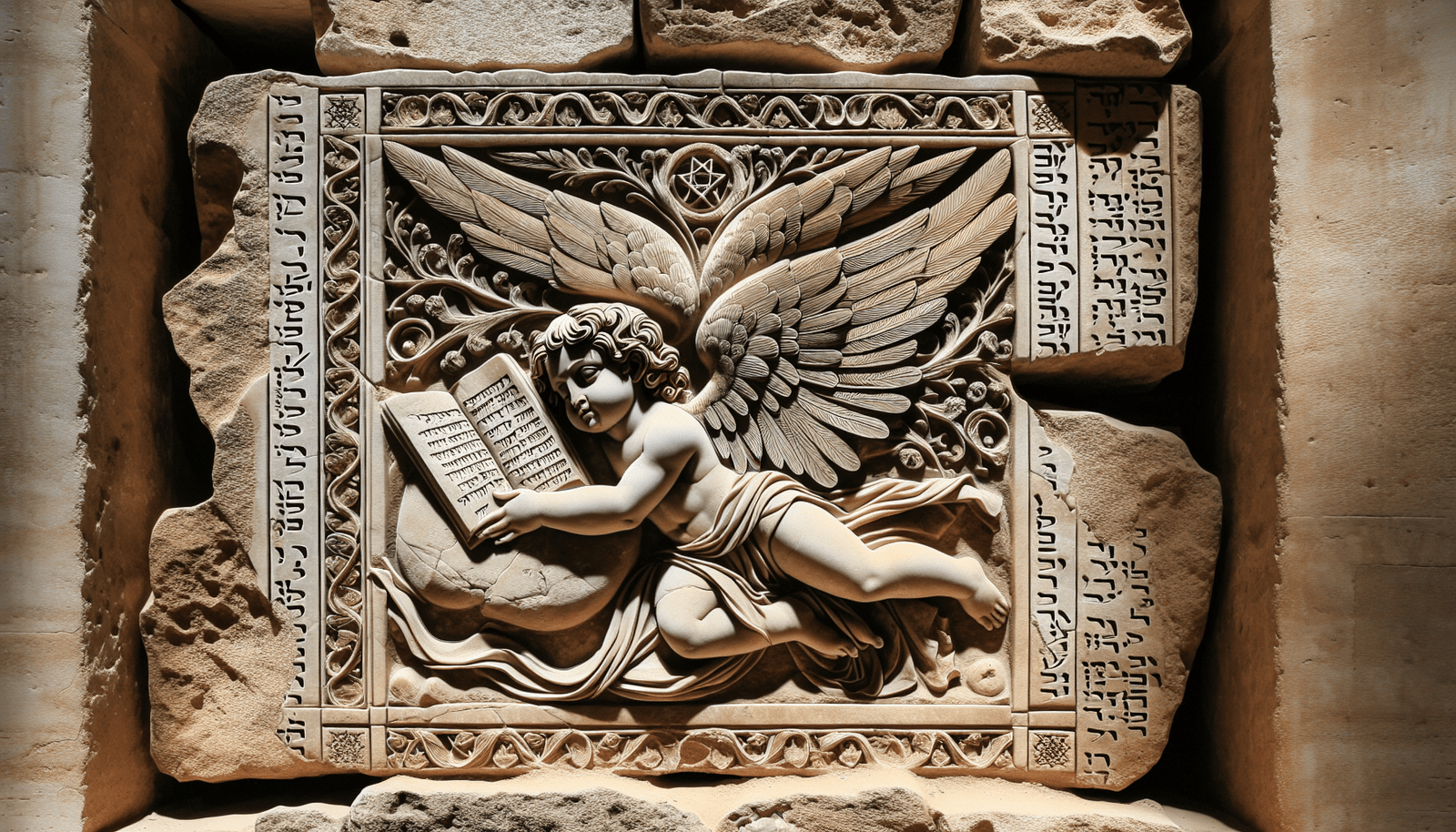What does it mean to maintain moral integrity when faced with temptation? Isn’t that a question worth pondering, especially in light of historical examples that resonate even today? The Qumran Storeroom Trunk, a seemingly ordinary object from the Second Temple period, may offer unexpected insights into this question. For those intrigued by the interplay between archaeology and ethics, this study delves into the moral implications woven into the very fabric of ancient lives.

Understanding Qumran
A Brief Historical Context
Nestled alongside the northwestern shore of the Dead Sea, Qumran was home to a mysterious sect often associated with the Essenes. This Jewish community lived in isolation, dedicated to rigorous religious practices between the late 2nd century BCE and 68 CE. The discovery of the Dead Sea Scrolls in the mid-20th century provided unprecedented insights into their beliefs and daily lives.
The Significance of the Dead Sea Scrolls
The scrolls uncovered in nearby caves include biblical texts, commentaries, and community rules, painting a vivid picture of the spiritual landscape of that era. They shed light not only on the preservation of scripture but also on the ethical frameworks guiding the members of the community. This isn’t just about dusty ancient pages; it reflects moral quandaries and choices faced by those individuals in daily life.
The Storeroom and Its Contents
What Was Inside the Qumran Storeroom?
The Qumran storeroom, or “trunk,” was essentially a repository of goods. While it may look like an unassuming structure at first, its contents tell a compelling story about the community’s organization and values. Items found here included communal supplies, food, and ritual objects. It played a crucial role in the communal life of the Qumranites.
A Closer Look at the Artifacts
- Ceramics and Cooking Ware: Evidence of shared meals, signifying communal ties.
- Scrolls: Manuscripts crucial for both religious understanding and ethical instruction.
- Ritual Objects: Items needed for purity and ceremonial practices, reflecting a deep concern for moral living.
From these artifacts, it’s apparent that their careful management was reflective of their commitment to moral integrity. After all, when resources are shared among a community, the principles of trust and fairness come into play.
Moral Integrity and Community Life
The Ethical Framework of the Essenes
At the heart of the Qumran community lay a robust ethical code. Life here wasn’t just about isolation; it was about striving for moral purity and integrity in a world perceived as corrupt. The community’s rules, detailed in texts like the “Community Rule” or “Manual of Discipline,” operationalized their values.
Key Principles of Moral Integrity in Qumran
- Honesty: Transparency in dealings among community members.
- Justice: Fairness in discourse and distribution of common goods.
- Purity: Commitment to physical and spiritual cleanliness as moral imperatives.
These principles not only guided the Qumranites but also serve as reminders that moral integrity has always been a complex and nuanced pursuit.
The Storeroom as a Moral Microcosm
A Symbol of Shared Responsibility
The storeroom itself is a fascinating representation of the collective ethos of Qumran. The act of storing and sharing resources suggests a society deeply committed to moral integrity. Here’s how:
- Delegation of Trust: Members entrusted with access to the storeroom bore the weight of that responsibility.
- Community Nourishment: Ensuring no one went hungry demonstrates collective moral accountability.
- Ritual Preparedness: Maintaining a supply of ritual items underscores the importance of spiritual commitment.
These elements weave a narrative about how the community’s infrastructure was designed not just for survival but for flourishing in a morally upright manner.

The Qumran Codes in a Modern Context
Bridging Ancient and Contemporary Ethical Dilemmas
When discussing moral integrity, think about how ancient principles apply to today’s life. The Qumranites faced challenges that resonate now. For you, consider:
- Workplace Ethics: Are you managing shared resources responsibly?
- Social Responsibility: How do you hold yourself accountable to your community?
- Personal Choices: Do you uphold your principles even when it’s inconvenient?
These questions reflect the same struggles the Qumran community dealt with, reminding you that moral choices transcend time.
Applying Qumran Principles Today
- Integrity Over Convenience: Choosing to do right can often come at a personal cost, echoing the sacrifices made by the Essenes.
- Collective Well-being: Emphasizing community over self-interest is as relevant now as it was in the storeroom.
- Continuous Learning: Just as the Qumranites dedicated themselves to scriptural study, remaining open to learning enhances your moral framework.
By considering these applications, you can cultivate an ethical stance that honors both historical wisdom and contemporary issues.
The Archaeological Perspective
The Role of Archaeology in Understanding Morality
Archaeology isn’t just about unearthing artifacts; it’s about telling stories. The findings at Qumran illuminate how a moral community endeavored to live ethically through their practices. This isn’t merely academic; it reflects shared human experiences and ethical struggles.
Insights from Recent Discoveries
Recent excavations have uncovered new artifacts and documents that further elucidate the community’s values. For example:
- New Scrolls: Additional texts found in the surrounding caves provide nuanced insights into communal life.
- Housing Structures: Indicate a layout designed to foster communal interaction, reinforcing collective integrity.
These discoveries continue to deepen our understanding of the Qumranites’ moral pursuits, urging scholars and general readers alike to consider the ongoing relevance of their ethical commitments.
The Theological Implications
Moral Integrity in Religious Contexts
Delving into the scriptural backdrop that informed Qumran’s practices reveals layers of theological significance. From the Hebrew Scriptures to the teachings of later rabbinic literature, themes of moral integrity resonate deeply.
Key Theological Reflections
- Covenantal Ethics: The relationship between God and humanity centers on moral obligations, as evidenced in texts like Exodus and Deuteronomy.
- Prophetic Voices: Prophets often challenged the status quo, advocating for justice and ethical behavior, reminiscent of the Qumran community’s code.
- Messianic Expectations: The longing for a righteous Messiah was a driving force behind their moral conduct.
These elements invite you to ponder how theology interweaves with everyday ethics, shaping aspirations for a just society.
Integrating History and Ethics
Learning from History’s Lessons
By looking back at Qumran, you can certainly glean lessons applicable to contemporary ethical dilemmas. The choices made by the Essenes resonate with current challenges surrounding trust, community, and moral dilemmas.
Critical Reflections on Modernity
- Moral Relativism: How does the quest for integrity hold up in a world where ethics seem subjective?
- Civic Responsibility: What parallels can you draw between community ethics in antiquity and today’s social contracts?
- Crisis of Integrity: The prevalence of moral failings in leadership can be juxtaposed against the storeroom’s model of shared trust.
These reflections not only honor the legacy of the Qumran community but also challenge you to consider your ethical stance amidst contemporary complexities.
Conclusion: A Call for Moral Integrity
The Qumran Storeroom Trunk, therefore, becomes more than just an archaeological find; it stands as a symbol of moral integrity that has stood the test of time. Its narrative urges you to recognize the responsibility of shared resources, the weight of moral choices, and the importance of communal ethics.
While the community may be ancient, the principles they encompassed—honesty, justice, purity—remain crucial today. As you navigate your life, think of Qumran not only as a physical location but as a persistent challenge to uphold moral integrity in your own storerooms, be they literal or metaphorical.
So, what will you choose as you engage with your community and the world around you? The lessons gleaned from the past provide a rich tapestry that not only informs but inspires. In this light, the Qumranites’ commitment to moral integrity shines brightly, inviting you to adopt a similar approach in navigating the complexities of modern life.



